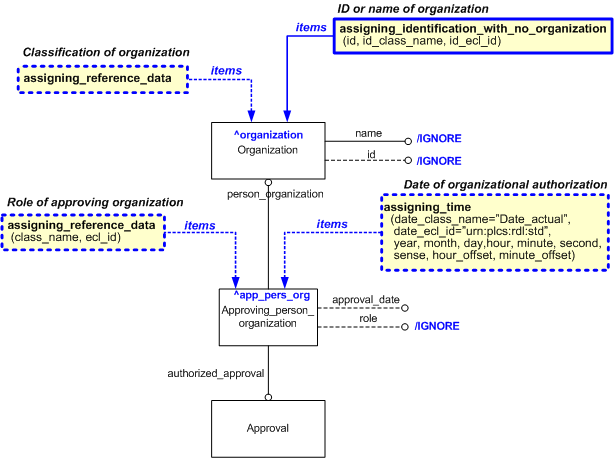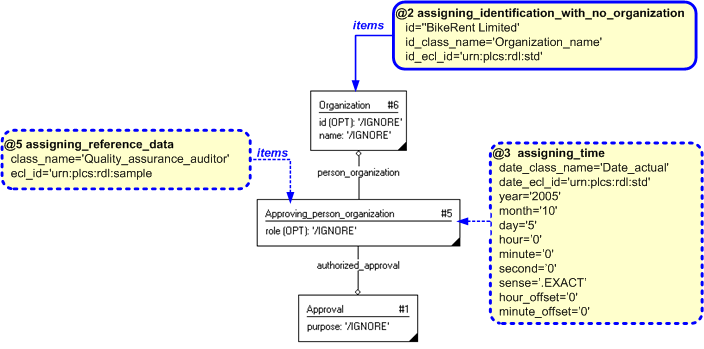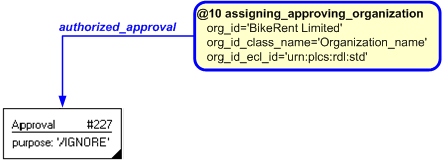Capability:assigning_approvals
Revision: 1.14
| Template:— assigning_approving_organization (asg_apr_org) Capability:assigning_approvals |
Date: 2008/01/14 10:11:44 Revision: 1.14 |
The use of template,assigning_approving_organization, has been deprecated since 2008-01-09.
The assigning_approval template now uses the representing_person_in_organization and representing_organization templatesThis section specifies the template assigning_approving_organization.
NOTE The template has been defined in the context of the capability assigning_approvals which provides an overall description of the relevant parts of the ISO 10303-239 information model and a description of related templates.
NOTE An explanation of a template and the associated instantiation path is provided in the Template overview section.
This template describes how to assign an organization (not a person in an organization) to an approval of something.


target
is the parameter to which the
Organization
is bound.
target
is the parameter to which the
Approving_person_organization
is bound.
| Entity in path | Value | Inherited from |
| Approving_person_organization.role | '/IGNORE' | — |
| Organization.name | '/IGNORE' | — |
| Organization.id | '/IGNORE' | — |


NOTE this characterization is optional.
The date on which an organization gave an approval is represented by using the assigning_time template to assign a date and time to the Approving_person_organization. If this represents the planned date of approval, then the assigning_time template classifies the date and time as "Date planned" (urn:plcs:rdl:std:Date planned). If the date and time is the actual date, then the assigning_time template classifies the date and time as "Date actual" (urn:plcs:rdl:std:Date actual). This is illustrated in Figure 3, template @3.
NOTE this characterization is optional.
Several entities may be classified to provide further semantics to the data.
The role of a person in an organization is represented using the template assigning_reference_data to assign a class to an Person_in_organization. This is illustrated in Figure 3, template @3.
The reason or role for the assignment of a person to an approval is represented by using the template assigning_reference_data to assign a class to Approving_person_organization. This is illustrated in Figure 3, template @5.
The type of organization may be represented by using the template assigning_reference_data to assign a class to Organization. This is illustrated in Figure 1.
NOTE this characterization is optional.
An address may be assigned to a person in organization, e.g. to provide contact information.
The address of a person is represented using the template assigning_address to assign an address to a Person_in_organization. This is illustrated in Figure 1.
© OASIS 2010 — All rights reserved